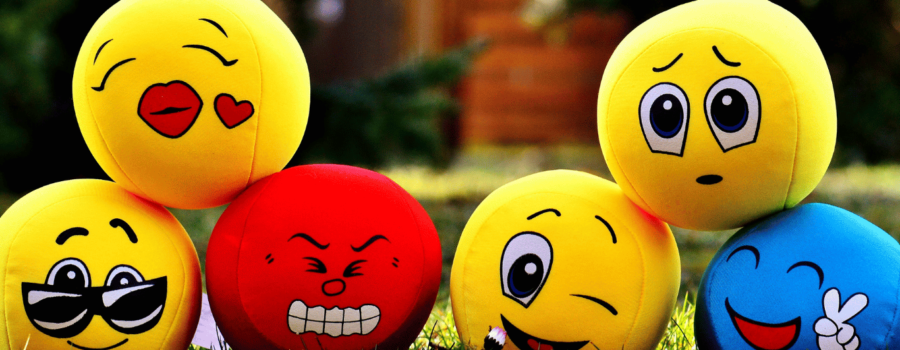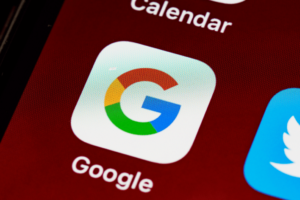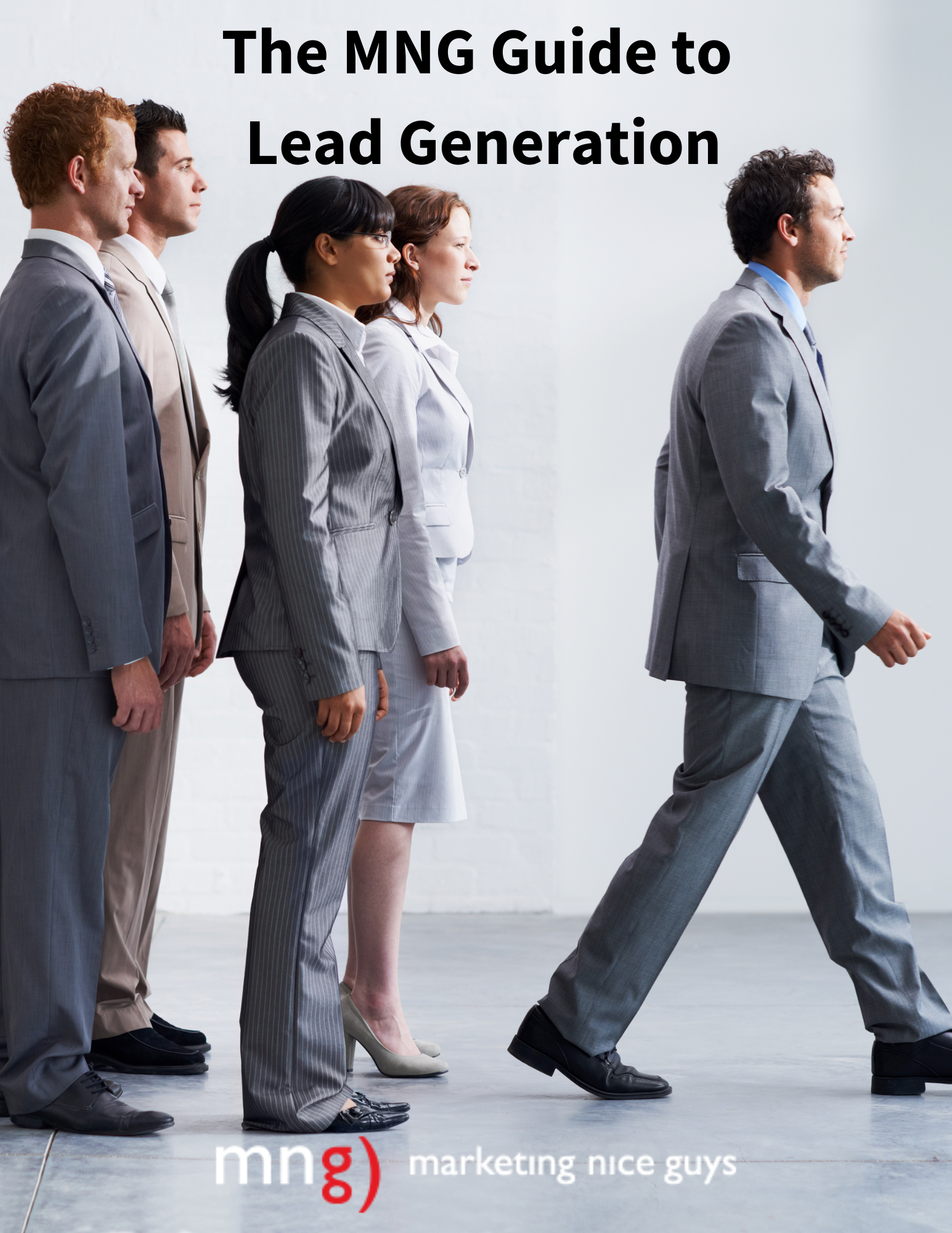Before we dive into the topic at hand, let’s first go back to the definition of marketing. While some may debate this (and the American Marketing Association certainly has its own approved different definition), I’ve always been partial to this one: “Marketing is the process of communicating the value of a product or service to customers, for the purpose of influencing buyer behavior and/or to precipitate behavioral change.”
The key here is behavior change. You, as business owner/marketer have to encourage audiences “to act or do something.” That could be clicking on your ad or social post, getting them to engage with your website, moving them to buy after putting a product in the cart. Or, maybe getting them to come to your store or shop. Marketing is all those things and more.
How do great companies do that? One method is to use emotion. In particular, creating emotional messaging that resonates with your potential and current customers/clients. In order to do that well, though, you have to understand the underlying psychographic data of your audience, which includes information about customers’ personalities, values, attitudes, and lifestyles. To distill this down quickly, marketers will often try to get at 4 core emotional questions about their audiences. Those are:
-
- What do they love?
- What do they fear/what makes them anxious or insecure?
- What do they hate? What makes them angry?
- What drives them/what’s their ambition?
Let’s break down each one.
Emotion No. 1: Love
Depending on your audience, this could be any number of things. The fundamental psychological process behind love is something known as attachment theory – the suggestion that people have an innate need to form close emotional bonds with others and that these bonds are critical for survival and well-being. Love is also used to tap into people’s self-esteem, self-worth and self-image. When people feel good about themselves and their self-image, they will be more likely to purchase products that align with that positive self-image. A lot of the common areas you’ll see marketers try to mine in terms of data around love include family, friendship, freedom, and fun.
Companies use love-based messaging to create a sense of connection and emotional attachment to their products. Some might recall Coca-Cola’s “Share a Coke” campaign, launched in 2013, which encouraged people to buy a Coke with the name of someone they loved and share it with them. The campaign was so successful in creating a sense of connection and emotional attachment to the product, it led to an increase in sales and brand loyalty. Other companies that use love, include:
-
- Hallmark Cards: Hallmark uses love as an emotional motivator by creating ads that evoke feelings of love and affection. They often feature couples and families expressing their love for one another, with the message that a Hallmark card is the perfect way to express those feelings.
-
- Tiffany & Co. and Cartier: These jewelry companies use love as an emotional motivator by creating ads that evoke feelings of romance and commitment. They often feature couples getting engaged or getting married, with the message that their jewelry is the perfect symbol of love and commitment.
-
- Disney: Disney creates ads that evoke feelings of family and nostalgia. They often feature families enjoying their theme parks and resorts together, with the message that Disney is a place where families can create lasting memories of love and joy.
-
- Hershey’s: The candy company often features couples and families enjoying their chocolate together, with the message that Hershey’s chocolate is a way to share and express love.
Emotion No. 2: Fear, Insecurity, & Anxiety
Another powerful psychographic motivator is fear and companies use data about customers to often play on their anxieties or insecurities. They will typically use fear-based messaging to create a sense of urgency or to highlight the negative consequences of not taking action. In terms of psychology, fear, insecurity, and anxiety are all emotions that are associated with the fight or flight response. This is an automatic physiological response that occurs when we perceive a threat. This physiological response can make people feel more alert and motivated to take action. Moreover, fear, insecurity, and anxiety are emotions that are associated with the self-preservation instinct, which is a fundamental human drive to survive and protect oneself.
Obviously, with this emotion, the line between emotional manipulation and good marketing is not always clear. Scammers, for example, may prey on people’s fears or insecurities, promising to solve a problem that they may not even have.
Of course, we do hope you, as a good marketer, use such emotional appeals in a way that is truthful and honest – to show how their product can improve lives, not just make false promises to separate individuals from their money. Companies that do this well:
-
- ADT Home Security Systems: ADT’s ads will often highlight what happens when you don’t have a home security system during break-ins, creating a sense of fear and urgency to purchase a security system.
- Norton/Symantec: Similarly, Norton, a cybersecurity software company, uses fear as a tactic in their marketing by highlighting the results of not having proper cybersecurity measures in place, such as identity theft, financial loss and hacked personal information.
- Allstate: If you’ve ever watched actor Dean Winters wonderfully play “Mayhem” in the Allstate commercials, then you’ve seen one of the best examples of fear in advertising – highlighting the negative consequences of not having insurance. That, along with the use of humor, motivates individuals to get coverage with Allstate.
- Proactiv: The skincare brand has long used insecurity in its marketing by highlighting the negative aspects of having acne, including low self-esteem, social anxiety, and difficulty in building relationships. The company’s ads often feature images of people with acne and testimonials from satisfied customers who have used Proactiv to clear their skin, with a message that their product can improve one’s appearance and self-esteem.
Emotion No. 3: Anger
A lot of companies or organizations that are cause-based will often use anger as a motivating tool. Typically, such messaging is used to create a sense of injustice or to highlight a problem that needs to be solved.
It’s most certainly one of the more complex emotions, influenced by a variety of factors such as social norms, cultural values, and personal experiences. However, the fundamental psychological reason it works in marketing is that individuals ultimately feel the need for justice, fairness, and equality. When people feel that something is unjust, unfair, or unequal, they will experience a sense of anger which can motivate them to take action.
Similar to fear or other negative emotions, anger can also be used to manipulate audiences in a way that’s not always beneficial to them and is often a staple of political campaigns aimed at firing up one side or the other to vote.
One of the most well-known cases was that of Cambridge Analytica, a political consulting firm, which used anger as a motivator to influence voter behavior during the 2016 US presidential election. Using stolen Facebook data and a technique called microtargeting, the firm was able to identify the specific issues and emotions that would be most likely to motivate each individual voter to take action. One of those was anger. In particular, the company disseminated social media ads that focused on topics that were known to be divisive, such as immigration, crime, and the economy. Some of the ads were also untrue, mainly designed to appeal to the frustrations of individual voters and to create a sense of anger and urgency about the issues.
That said, not all use of anger in marketing is about manipulation per se. Some good company examples:
-
- Patagonia: The outdoor clothing company has often used anger in its marketing campaigns by highlighting the negative consequences of consumerism and fast fashion, such as environmental damage and exploitation of workers. The company’s advertisements often feature images of pollution, deforestation, and other environmental problems, with a message that encourages customers to make sustainable choices and be more mindful of their consumption.
- Ben & Jerry’s: The ice cream maker’s ads often feature anger around social issues, with images of protests and movements, with a message that encourages customers to take action and make a difference.
- Meatless Monday: The non-profit uses anger in its marketing campaigns to highlight the cruelties of animal agriculture, as well as negative offshoots such as pollution and deforestation. The company’s advertisements often feature images of factory farms, with a message that encourages customers to reduce their meat consumption and adopt a plant-based diet.
Emotion No. 4: Ambition
Companies use ambition-based messaging to create a sense of motivation and to highlight the positive consequences of taking action. Generally, the focus here is on audience members’ dreams and aspirations. The psychological reason why this type of marketing works is that it taps into people’s innate desire for self-improvement and self-actualization. People have a natural inclination to strive for success and to achieve their goals. In addition, ambition is closely linked to the concept of self-esteem and self-worth, and can satisfy the need some have for social comparison with others.
However, this area too can be a form of manipulation by scam artists who prey upon individuals with particular goals. Not so long ago, TV personality and author Kevin Trudeau, for example, was convicted several times of scamming people earlier in the millennium through false and misleading infomercials. He promised people easy solutions to weight loss, cures for various diseases and even suggested he could reveal secret government information. He preyed on people’s ambition to be healthier, wealthier, and more informed by using false and misleading information to sell his books, videos, and other products.
That said, companies obviously also use this emotion as a positive motivator as well. Some examples include:
-
- Nike: The sportswear and athletic giant often uses ambition in its marketing by highlighting the positive consequences of pushing oneself to achieve one’s goals, such as improved physical fitness, self-confidence, and a sense of accomplishment. The company’s advertisements often feature images of athletes pushing themselves to their limits with an underlying message that its products align with individuals who strive for greatness.
- Red Bull: The energy drink company ads often feature images of extreme sports and testimonials from satisfied customers, with a message that its product can help individuals maximize their time and focus during the day.
- Headspace: The meditation app company recently used ambition in its marketing by highlighting the positive consequences of meditation, such as stress management and overall well-being. It targeted those who strive to live a better and more fulfilling life.
Conclusion
One thing to remember here is that emotion is just one aspect of marketing but it’s a big part that drives behavior and behavior change. The four mentioned here may be the most widely employed, but they too are also only the tip of the iceberg when it comes to motivating audiences. Not sure how to approach emotion or other motivators in your marketing? Contact us today at Marketing Nice Guys. We’ll be happy to walk through a strategy session to help you employ the tactics that work best.






